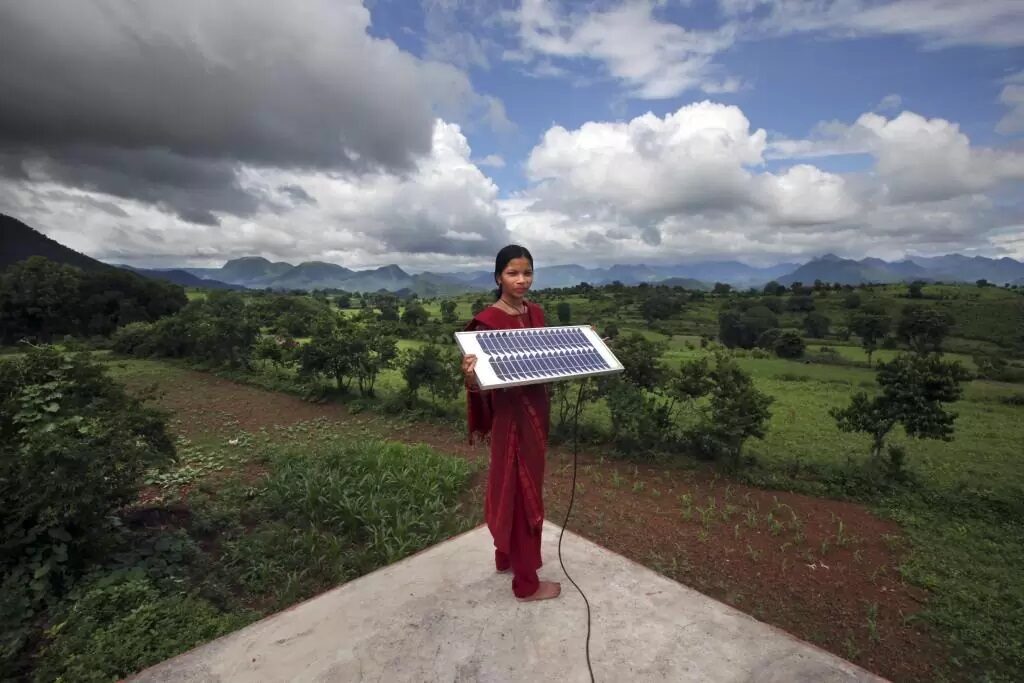Silos Holding Back The Energy Transition
Nov 14, 2022 | Pratirodh Bureau
Meenakshi Dewan is one of four women from the village of Tinginapu in Odisha, who has been trained in solar-powered engineering (DFID)
When leaders of the G20 nations meet in Bali next week, it’s expected they will commit to the ‘Bali Compact’ — a set of nine principles agreed in September by the G20 energy ministers. At its heart is a plan to accelerate the transition to renewable energy.
Indonesia brings the theme of “recover together, recover stronger” to the G20 presidency, and is juggling the need to address the negative impacts of climate change on health and prosperity with an energy crisis and desire for a sustainable energy transition.
The geopolitical tension and associated sanctions of 2022, coming on the back of the COVID-19 pandemic mean developed economies are struggling with energy security. Meanwhile, many developing economies are still struggling with energy access. As the G20 lead, Indonesia is trying to consider both concerns.
One option to help do this is conspicuously absent from the Bali Compact.
Italy’s presidency of the G20 in 2021 recognised the role of digitalisation in enhancing energy security and market stability. But the role of digitalisation and technology in catalysing the energy transition is missing from the Bali Compact.
Digital innovation and technology fosters climate actions and sustainable energy transformation, for example, automatic sensors using Artificial Intelligence (AI) can detect equipment failure to save energy in industry.
The digital economy ministers of the G20 have encouraged cooperation to improve innovation in many sectors including sustainable and renewable energy. And yet, the energy ministers have made little progress in encouraging the adoption of digital innovation to ensure energy security and energy access.
The Bali Compact highlights the urgent need to secure energy accessibility, scale up smart and clean technologies, and advance energy financing. Technology transfer and energy financing are some of the ways to ensure both energy access and energy security can be achieved.
Technology transfer and access to finance are crucial, but there is not yet an inclusion of how innovation and digitalisation can support the two initiatives.
The fourth industrial revolution, in which everything is digitally connected, can support economic recovery. It can play a role in fostering energy access, particularly for remote areas that are not connected to the electricity grid. Digital automation also helps expedite energy efficiency and the rise of renewable energy consumption. Moreover, digital technology such as AI and blockchain can be an innovative solution to unlock green financing in the energy sector through its transparency and traceability.
G20 nations are in a good position to adopt digital technologies given the higher levels of broadband connectivity in the bloc, compared with the world. But the substantial disparities in connectivity between urban and rural areas means stakeholders in the energy, climate and digital technology sectors will have to collaborate to ensure alignment in regulations and practices.
If these sectors remain siloed, G20 nations will likely miss the innovative solutions on the table to meet the current challenges of energy security, accessibility and prosperity.
